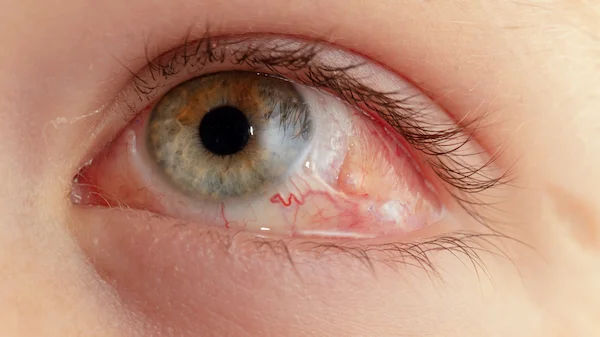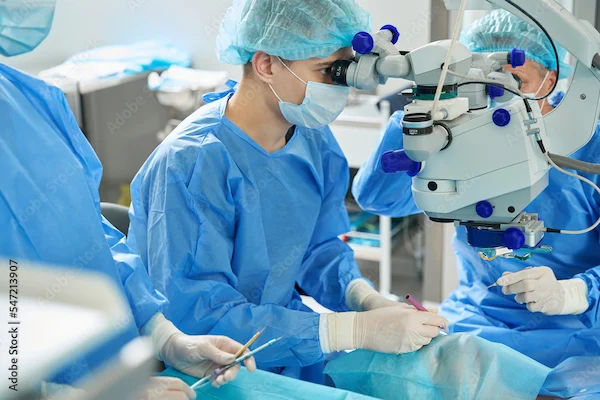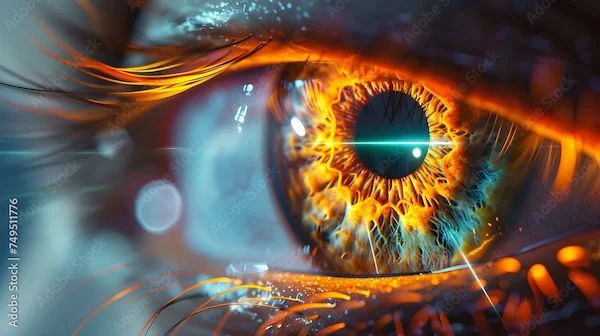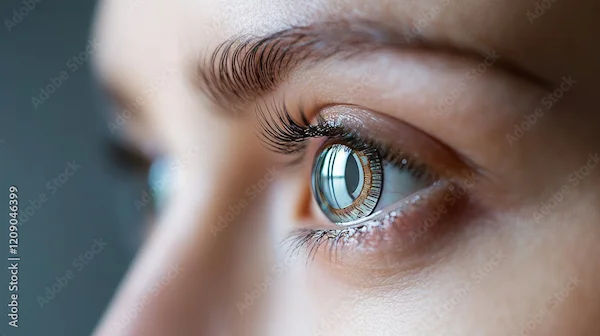Cataract After Retinal Detachment Surgery
Understand why cataracts can develop after retinal detachment surgery and how they're managed. Learn about the connection between the two conditions, potential timelines for cataract formation, and treatment options for clear vision.

Written by Dr.Sonia Bhatt
Last updated on 16th Jul, 2025

Introduction
If you or a loved one has recently undergone retinal detachment surgery, you may have concerns about developing cataracts afterward. This is a common occurrence, and understanding why it happens, what symptoms to watch for, and how to manage it can help ease your worries.
What Is a Cataract After Retinal Detachment Surgery?
A cataract is a clouding of the eye’s natural lens, which lies behind the iris and pupil. After retinal detachment surgery, some patients develop cataracts due to changes in the eye’s structure or as a side effect of the procedure itself.
Retinal detachment surgery is performed to reattach the retina (the light-sensitive layer at the back of the eye) to prevent vision loss. However, the surgery can sometimes accelerate cataract formation, especially if:
Vitrectomy was performed (removal of the gellike vitreous humor inside the eye).
Gas or silicone oil was used to hold the retina in place.
The eye experienced trauma or inflammation during surgery.
Consult Top Ophthalmologist
Symptoms of Cataract After Retinal Detachment Surgery
If you notice any of the following symptoms, you may be developing a cataract:
Blurry or cloudy vision – Objects may appear hazy or less sharp.
Increased sensitivity to light – Bright lights may seem glaring.
Difficulty seeing at night – Poor vision in lowlight conditions.
Fading of colors – Colors may appear dull or yellowish.
Double vision in one eye – Seeing two images instead of one.
These symptoms can develop gradually, so regular followups with your eye doctor are essential.
Why Does Cataract Occur After Retinal Detachment Surgery?
Several factors contribute to cataract formation after retinal surgery:
Surgical Trauma – The eye undergoes stress during surgery, which can affect the lens.
Vitreous Removal – The vitreous gel helps support the lens. Removing it can accelerate cataract development.
Use of Gas or Silicone Oil – These substances can interact with the lens, leading to clouding.
Age Factor – If you were already at risk for cataracts due to aging, surgery may speed up the process.
How Does It Affect Your Vision?
A cataract can make daily activities like reading, driving, or recognizing faces difficult. Since retinal detachment surgery already affects vision, a cataract can further reduce clarity. However, the good news is that cataracts are treatable with surgery, and vision can often be restored.
Managing and Treating Cataracts After Surgery
Managing and treating cataracts after surgery includes:
1. Regular Eye Checkups
Visit your ophthalmologist regularly to monitor cataract progression.
Early detection helps in planning timely treatment.
2. Lifestyle Adjustments
Use brighter lighting for reading and closeup work.
Wear antiglare sunglasses outdoors to reduce light sensitivity.
Use magnifying lenses if the small print is hard to read.
3. Cataract Surgery (When Needed)
If the cataract significantly affects your vision, your doctor may recommend cataract surgery. This is a safe and common procedure where the cloudy lens is replaced with an artificial one.
What to Expect During Cataract Surgery?
Quick Procedure – Usually takes 15–30 minutes.
Minimal Discomfort – Done under local anesthesia.
Fast Recovery – Most patients see improvement within a few days.
When to See a Doctor?
If you experience:
Rapid vision decline
Severe pain or redness in the eye
Sudden flashes or floaters (could indicate another retinal issue)
Consult an eye specialist immediately.
Prevention and Long Term Care
While cataracts after retinal surgery may not always be preventable, you can take steps to protect your eye health:
Control diabetes and blood pressure – These conditions can worsen eye problems.
Eat a nutrient-rich diet – Include leafy greens, fish, and vitamin-rich foods.
Avoid smoking – Smoking increases cataract risk.
Wear protective eyewear – Shield your eyes from injury.
Final Thoughts
Developing a cataract after retinal detachment surgery can be concerning, but with proper care and timely treatment, your vision can be restored. Regular follow ups with your eye doctor are crucial to monitor changes and take action when needed.
If you notice any vision changes, don’t hesitate to book a consultation with an ophthalmologist through Apollo 24|7. Early intervention can make a big difference in maintaining your eye health.
Consult Top Ophthalmologist
Consult Top Ophthalmologist
Dr. S Venkateswaran
Ophthalmologist
35 Years • MBBS, PGD (OPTHALMOLOGY)
Tiruvannamalai
Shiva Eye And General Hospital, Tiruvannamalai
Dr. Akashdipta Saha
Ophthalmologist
4 Years • MBBS, MD(Ophthalmology), Fellowship in Retina & Vitreous
Delhi
AIIMS, Delhi

Dr. Syed Saifullah Bokhari
Ophthalmologist
4 Years • MBBS, MS(Ophthalmology)
Bengaluru
Vasan Eye Care, Bengaluru
Dr. Kakarla Roopa
Ophthalmologist
3 Years • MBBS MS Ophthalmology
Tirupati
Anna Gowri Hospital, Tirupati

Dr. Balakrishna Balaka
Ophthalmologist
6 Years • MBBS, MS Ophthalmology
Visakhapatnam
Balakrishna eye clinic, Visakhapatnam
Consult Top Ophthalmologist
Dr. S Venkateswaran
Ophthalmologist
35 Years • MBBS, PGD (OPTHALMOLOGY)
Tiruvannamalai
Shiva Eye And General Hospital, Tiruvannamalai
Dr. Akashdipta Saha
Ophthalmologist
4 Years • MBBS, MD(Ophthalmology), Fellowship in Retina & Vitreous
Delhi
AIIMS, Delhi

Dr. Syed Saifullah Bokhari
Ophthalmologist
4 Years • MBBS, MS(Ophthalmology)
Bengaluru
Vasan Eye Care, Bengaluru
Dr. Kakarla Roopa
Ophthalmologist
3 Years • MBBS MS Ophthalmology
Tirupati
Anna Gowri Hospital, Tirupati

Dr. Balakrishna Balaka
Ophthalmologist
6 Years • MBBS, MS Ophthalmology
Visakhapatnam
Balakrishna eye clinic, Visakhapatnam




